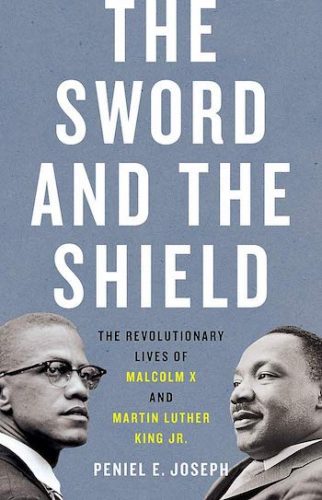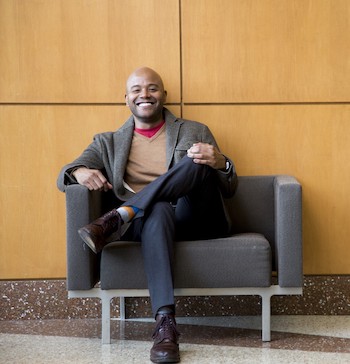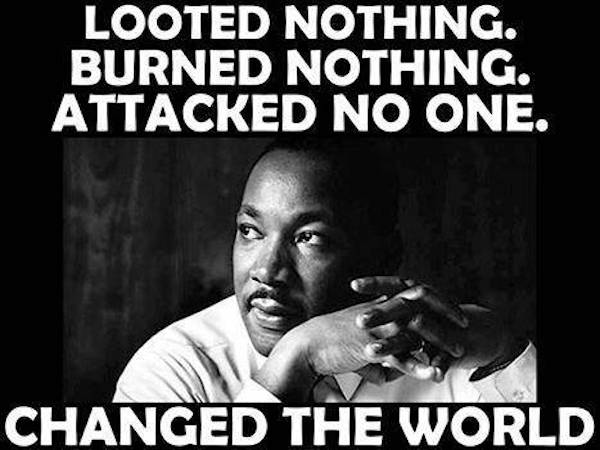Author Interview: Peniel E. Joseph on “The Sword and the Shield: The Revolutionary Lives of Malcolm X and Martin Luther King Jr.”
By Blake Maddux
“Malcolm X and MLK evolved over time and came to converge in surprising ways. Malcolm’s movement for radical black dignity became a global human rights touchstone in a manner that made King’s struggle for radical black citizenship both necessary and more expansive.”

Dr. Kendra Field currently directs the Center for the Study of Race and Democracy at Tufts University. However, the CSRD was founded in 2012 by Peniel E. Joseph, who served as a history professor there from 2009-2015. Dr. Joseph authored two books while teaching in Medford: Dark Days, Bright Nights: From Black Power to Barack Obama and Stokely: A Life.
The local higher education community took a bit of hit when Joseph accepted an offer that took him from Boston to Austin and from TU to UT prior to the start of the 2015 fall semester. The New York City native now holds appointments in the history department and as the Barbara Jordan Chair of Ethics & Political Values at the Lyndon B. Johnson School of Public Affairs, which houses the CSRD that he established there after arriving.
Dr. Joseph published The Sword and the Shield: The Revolutionary Lives of Malcolm X and Martin Luther King Jr. (Basic Books) in March. In it, he writes, “Conventional depictions of Malcolm wielding a sword in pursuit of black dignity while King carried a shield for the defense of black humanity tells only part of the story … This neat juxtaposition…eras[es] the profound ways in which their politics and activism overlapped and intersected….”
The following is an interview with the scholarly polymath that The Arts Fuse conducted via email.
The Arts Fuse: Biography and history are separate but highly related methods of investigation. How is the former an effective way of teaching the latter?
Peniel Joseph: Biography is a very effective pedagogical tool, because the core of historical scholarship is the narratives that we tell about people, historical events, elections, protests, wars, peace. So viewing a historical era through the particular lens of ordinary or significant people lends the period an intimacy it might otherwise lack.
AF: What did you learn in the course of writing The Sword and the Shield and what do you expect will be new to readers?
PJ: I learned that both Malcolm X and MLK evolved over time and came to converge in surprising ways. Malcolm’s movement for radical black dignity became a global human rights touchstone in a manner that made King’s struggle for radical black citizenship both necessary and more expansive. I think readers will be surprised at the extent to which each served as the alter ego for the other.
AF: Much of your scholarship is dedicated to the Black Power movement. How did Malcolm, King, and Stokely Carmichael (who coined the term) contribute to its development?

Scholar Peniel Joseph. Photo: courtsey of the author.
PJ: All three were influenced by domestic civil rights struggles and the way in which this movement influenced and drew from global freedom currents. They were three of the boldest critics of white supremacy and racism that this country ever produced. Their thinking evolved over time and they managed to help to trigger watershed national and global events, from civil rights legislation, to Black Power movements, to transforming Negroes into proud black people the world over.
AF: Malcolm and King met only once. Did they deliberately avoid interacting with one another? What might have come about from a closer relationship between the two?
PJ: King probably had more incentive to avoid Malcolm, since he had more to lose at the time. If they worked together we might have been able to achieve a broader united front within black politics than we did.
AF: You write that in his “Beyond Vietnam” speech, delivered exactly one year before his assassination, King “assumed Malcolm’s previous role as black America’s prosecuting attorney…by offering a political seminar on American imperialism, racism, and economic injustice that announced his formal break with mainstream politics.” Did Malcolm ever assume any of King’s roles or public persona.
PJ: The “Ballot or the Bullet” speech [text/audio] finds Malcolm assuming the role of the Shield, as well as the Sword. He comes to believe in black people’s ability to wield democratic institutions towards freedom even though he remains skeptical of the capacity of American democracy to promote freedom and citizenship.
AF: In which ways does the city of Boston recognize the time that each of these historic figures spent here? Do you believe that it should it do more?
PJ: I believe Malcolm’s place in Roxbury is a historic site and BU has parts of MLK’s papers. The city could of course erect statues/commemorations to both since they helped to indelibly shape freedom’s cause in Boston and nationally.
AF: Some have defended the protests that have occurred in the wake of George Floyd’s killing by quoting King as having said, “A riot is the language of the unheard.” Others have shared a meme that reads, “Looted nothing. Burned nothing, Attacked no one. Changed the world.” What do you think that King would actually think?
PJ: Dr. King would be asking the nation to examine it own conscience regarding the roots of racial unrest. This is what he did in the aftermath of Watts, Newark, and Detroit. He understood the urgency of defeating white supremacy, eradicating racism, and ending poverty and inequality in American society. King called America the “greatest purveyor of violence” in the world, not just because of Vietnam, but due to the state sanctioned and structural violence that killed black people fast and slow every day.

AF: Were you hired by UT Austin specifically to establish a Center for the Study of Race and Democracy modeled on the one that you founded at Tufts?
PJ: Part of my appointment at UT was connected to establishing a Center at the LBJ School, which is a good fit since it’s a school of public affairs.
AF: What are the goals of the Center and how does it go about achieving them?
PJ: The Center promotes interdisciplinary scholarship and research and public history and policy programming at the intersection of race and democracy. We have undergraduate and graduate research fellows whose work forces on race, democracy, and social impact; convene conferences, symposia, lecture series related to race and democracy; produce a “Race and Democracy” podcast available on iTunes and other platforms; and are part of a national conversation around these issues that pays special attention to issues of race, equity, civil rights, and democracy in Austin, Texas as well as nationally and internationally.
Blake Maddux is a freelance journalist who regularly contributes to the Arts Fuse, the Somerville Times, and the Beverly Citizen. He has also written for DigBoston, the ARTery, Lynn Happens, the Providence Journal, The Onion’s A.V. Club, and the Columbus Dispatch. A native Ohioan, he moved to Boston in 2002 and currently lives with his wife and one-year-old twins–Elliot Samuel and Xander Jackson–in Salem, Massachusetts.
Tagged: Malcolm X, Martin Luther King Jr., Peniel E. Joseph

[…] as Joseph explains in an interview about his book, “Malcolm X and MLK evolved over time and came to converge in surprising ways. Malcolm’s […]